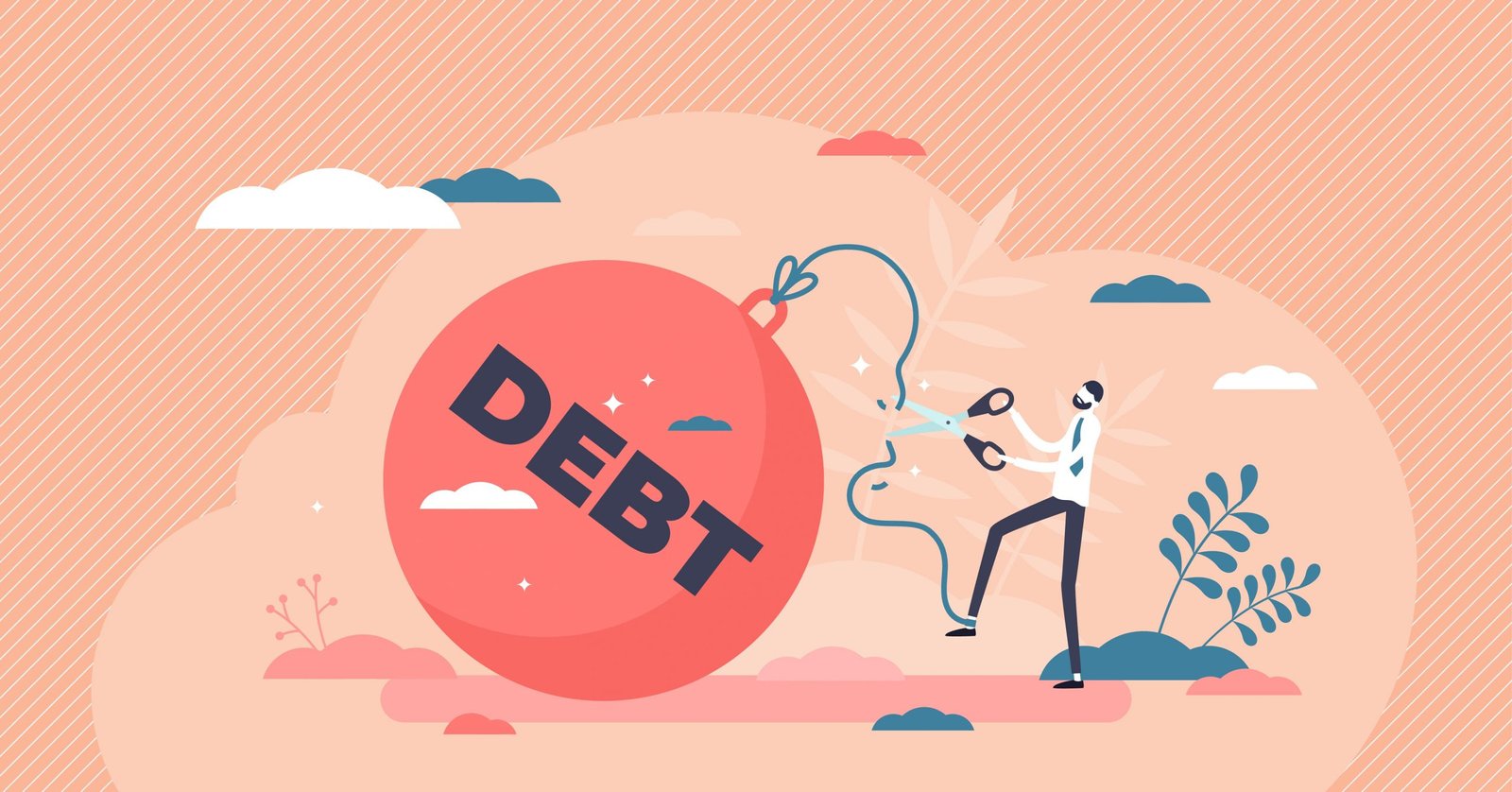Managing money can be tricky, but it’s important to avoid falling into debt. With careful planning, you can take control of your finances. Let’s explore the top strategies for avoiding debt to help you live stress-free.
Why Avoiding Debt Is Important
Financial Freedom
When you avoid debt, you keep more of your income.
- Save Money: You don’t pay extra interest.
- Plan Better: You can focus on your future goals.
Reduce Stress
Debt often causes anxiety.
- Peace of Mind: Managing money wisely brings confidence.
- Healthy Relationships: Money problems can strain personal connections.

Top Strategies for Avoiding Debt
Budgeting Wisely
A budget is your best tool.
- Track Spending: Write down everything you spend.
- Set Limits: Decide how much you’ll spend in each category.
Live Below Your Means
Avoid spending more than you earn.
- Cut Unnecessary Costs: Skip things you don’t need.
- Save Regularly: Put extra money into savings instead of spending.
Build an Emergency Fund
An emergency fund prevents sudden expenses from turning into debt.
- Start Small: Save a little each month.
- Aim for Three Months: Build enough to cover three months of expenses.
Smart Spending Habits
Avoid Impulse Buying
Think before you buy.
- Wait 24 Hours: Delay purchases to see if you really need them.
- Shop with a List: Stick to planned purchases.
Use Cash When Possible
Using cash helps control spending.
- Feel the Expense: You’re more aware of how much you’re spending.
- Avoid Credit Cards: This prevents interest charges.
Managing Credit Wisely
Pay Off Balances in Full
If you use credit cards, avoid carrying a balance.
- Pay Monthly: Clear your balance every month.
- Avoid Minimum Payments: These increase costs over time.
Limit Credit Use
Don’t rely on credit for everyday expenses.
- Use for Necessities Only: Like emergencies or planned large purchases.
- Avoid Overspending: Keep balances low to maintain control.
Increase Your Income
Take on Extra Work
Earning more reduces financial pressure.
- Freelance: Offer services online or locally.
- Part-Time Job: Work a few extra hours each week.
Sell Unneeded Items
Turn clutter into cash.
- Online Marketplaces: Sell items you no longer need.
- Garage Sales: Clear out space and earn money.
Planning for the Future
Save for Big Expenses
Prepare for costly events like vacations or holidays.
- Set Goals: Know how much you need to save.
- Use Separate Accounts: Keep savings separate from daily spending.
Plan for Retirement
Start saving early for a secure future.
- Contribute Regularly: Add to a retirement fund every month.
- Get Expert Advice: Consult a financial planner for guidance.
Avoid Common Debt Traps
Beware of High-Interest Loans
These loans can create long-term problems.
- Read Terms: Understand all fees before borrowing.
- Find Alternatives: Consider lower-interest options if necessary.
Limit Lifestyle Inflation
Don’t increase spending when your income rises.
- Stay Consistent: Keep expenses the same even if you earn more.
- Save the Extra: Put raises or bonuses into savings.
When to Seek Help
Talk to a Financial Advisor
If you struggle, get professional advice.
- Plan Better: Advisors can help you create a solid budget.
- Learn Strategies: They offer personalized tips for avoiding debt.
Join Support Groups
Connect with others who share your goals.
- Share Ideas: Learn new ways to save and manage money.
- Stay Motivated: Support keeps you on track.
Final Thoughts
Using these top strategies for avoiding debt can help you achieve financial stability. Start with simple steps like budgeting and saving, then build good habits over time. With patience and consistency, you can enjoy a debt-free life. Take control today!











